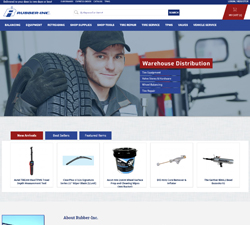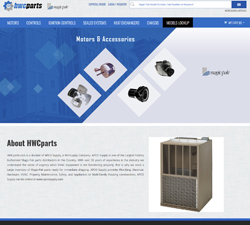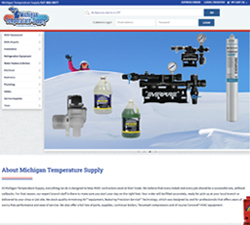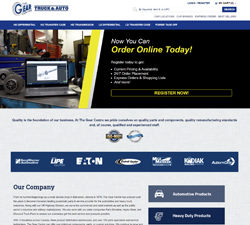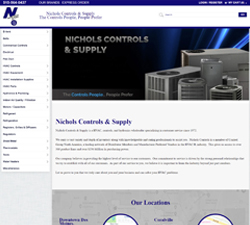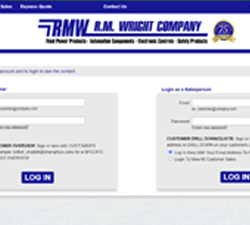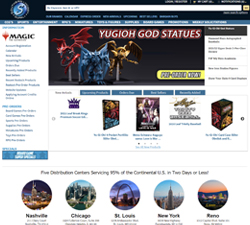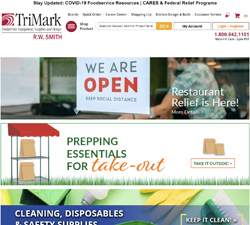(6) Injection Types (SQL, LDAP, XPath, OS, etc.)
Injection flaws occur when untrusted input is sent to an interpreter (SQL, command shell, etc.).
LOGISTICA-SOLUTIONS’s active scans send crafted payloads to detect whether inputs are properly sanitized or
if malicious input can change backend queries.
| Test |
Mode |
Risk |
What the test does |
| SQL Injection (SQLi) — blind, error-based, union-based |
Active |
Potentially damaging |
Sends SQL payloads to inputs to find database injection; can cause DB errors/high load.
|
| Command injection / OS injection |
Active |
Potentially damaging |
Attempts to inject OS-level commands into inputs — can execute commands or crash systems.
|
| LDAP Injection |
Active |
Potentially damaging |
Manipulates LDAP queries to access or alter directory data.
|
| XPath Injection |
Active |
Potentially damaging |
Tests injection into XML path queries; may reveal data or cause errors.
|
| NoSQL Injection (MongoDB etc.) |
Passive/Active |
Potentially damaging |
Sends payloads that exploit NoSQL query languages.
|
| Format string injection |
Passive/Active |
Potentially damaging |
Tests misuse of printf-style format strings — can crash or leak memory.
|
(7) Cross-Site Scripting (XSS)
XSS vulnerabilities allow attackers to inject scripts into web pages viewed by other users.
LOGISTICA-SOLUTIONS tests for reflected, stored, and DOM-based XSS to confirm whether the application safely
encodes and filters user input.
| Test |
Mode |
Risk |
What the test does |
| Reflected XSS |
Active |
Intrusive |
Sends script payloads to see if they are immediately reflected in responses. Usually non-destructive
but can trigger JS actions.
|
| Stored (Persistent) XSS |
Active |
Potentially damaging |
Submits payloads that get stored (e.g., comments) and later executed — modifies data and should be
avoided on prod.
|
| DOM-based XSS (client-side) |
Passive/Active |
Intrusive |
Analyzes client-side scripts to find unsafe DOM sinks; may test with payloads.
|
(8) File Handling & File Inclusion
These checks ensure the web app doesn’t expose or allow unintended file access. LOGISTICA-SOLUTIONS tests
for path traversal, file inclusion, and unsafe upload handling — all of which can allow data theft or remote
code execution if unprotected.
| Test |
Mode |
Risk |
What the test does |
| Path traversal / directory traversal |
Active |
Potentially damaging |
Attempts / sequences or encoded paths to read files outside webroot — high risk.
|
| Local File Inclusion (LFI) |
Active |
Potentially damaging |
Tests for inclusion of local server files via input parameters.
|
| Remote File Inclusion (RFI) |
Active |
Potentially damaging |
Tests for including remote resources — may cause SSRF and remote code execution.
|
| Unsafe file upload handling |
Active |
Potentially damaging |
Tries uploading scripts or unexpected file types to see if they execute or are accessible.
|
| Temporary/backup file exposure |
Passive |
Safe |
Requests common backup names to detect exposed config/backups.
|
(9) XML / Deserialization / Template Injection
These advanced server-side checks identify unsafe handling of serialized data, XML parsing, and template
rendering — all of which can lead to remote code execution or data exposure if exploited.
| Test |
Mode |
Risk |
What the test does |
| XML External Entity (XXE) |
Active |
Potentially damaging |
Provides XML payloads that force the server to read local files or make remote requests.
|
| Unsafe deserialization / object injection |
Active |
Potentially damaging |
Sends serialized objects to cause remote code execution or logic flaws.
|
| Server-side template injection (SSTI) |
Active |
Potentially damaging |
Attempts to inject template expressions into rendering engines (e.g., Jinja2) — can execute code.
|
(10) Cross-Site Request Forgery (CSRF) & State-changing Tests
CSRF vulnerabilities let attackers trick users into performing actions unintentionally. LOGISTICA-SOLUTIONS
verifies the presence of CSRF tokens and tries to perform state-changing requests without them.
| Test |
Mode |
Risk |
What the test does |
| CSRF token presence and strength (passive) |
Passive |
Safe |
Checks forms for CSRF token presence. |
| CSRF exploitation attempt (active) |
Active |
Intrusive |
Attempts to perform actions without proper CSRF tokens — can change state and should not be done on
production unless authorized.
|
| Unsafe idempotent actions test |
Active |
Intrusive |
Tries repeating state-changing requests to test for idempotency and protections.
|
(11) Client-side / Browser-oriented Checks
LOGISTICA-SOLUTIONS evaluates how the website behaves in the user’s browser — testing for unsafe framing,
weak CORS policies, and improper content-type handling that can open the door for phishing or injection.
| Test |
Mode |
Risk |
What the test does |
| Content sniffing / MIME-type checks |
Passive |
Safe |
Verifies content-type and X-Content-Type-Options header behavior. |
| Clickjacking checks |
Passive |
Safe |
Detects if pages can be framed.
|
| CSP violations / inline script detection |
Passive |
Safe |
Analyzes CSP and inline scripts.
|
| CORS misconfiguration checks |
Passive/Active |
Safe / Intrusive |
Detects permissive cross-origin policies; may test by sending cross-origin requests.
|
(12) Server-side Request Forgery (SSRF) & Network
These tests detect when web apps fetch URLs provided by users, possibly allowing attackers to make the
server connect to internal systems or external malicious endpoints.
| Test |
Mode |
Risk |
What the test does |
| SSRF basic checks (internal URL fetch) |
Active |
Potentially damaging |
Submits payloads to endpoints that fetch remote URLs to see if internal resources can be reached —
high risk. |
| DNS rebinding / callback detection |
Active |
Potentially damaging |
Uses out-of-band interactions to detect if server reaches attacker-controlled endpoints.
|
(13) Denial of Service & Performance-type Tests
LOGISTICA-SOLUTIONS includes rules that can overload or slow down applications if run aggressively. These
are used only in staging environments to test resilience and should never be executed on live production
systems.
| Test |
Mode |
Risk |
What the test does |
| Large payloads / fuzzing / stress requests |
Active |
Potentially damaging |
Sends oversized or repetitive requests to stress CPU, memory, or DB. Do not run on production. |
| Slow POST / request smuggling tests |
Active |
Potentially damaging |
Tests for request parsing issues that could hang servers.
|
(14) Miscellaneous / Additional Checks
This group includes broader checks for misconfigurations, open redirects, logging flaws, and dependency
vulnerabilities — ensuring that even less obvious security weaknesses are covered.
| Test |
Mode |
Risk |
What the test does |
| Open redirect / unvalidated redirect |
Active |
Intrusive |
Tests redirect parameters to see if users can be sent to attacker URLs. |
| Cache poisoning tests |
Active |
Intrusive |
Attempts to manipulate responses cached by reverse proxies/CDNs; can affect real users.
|
| Log injection / log forging |
Active |
Intrusive |
Inserts payloads into logs; can pollute logs or confuse monitoring.
|
| Security misconfiguration patterns |
Passive |
Safe |
Detects common bad server/app configurations (directory permissions, debug mode).
|
| Dependency & external JS checks (third-party libs) |
Passive |
Safe |
Flags inclusion of external libraries that may be vulnerable/outdated.
|
Risk Summary — Which Tests To Avoid On Production
Generally safe to run on production: Passive scans (headers, cookies, CSP, TLS, file
exposure checks that are read-only).
Run with caution on production: Forced browsing, parameter discovery, login brute-force,
repeated requests (may trigger rate limits), any test that creates resources (e.g., stored XSS, account
creation).
Never run on production unless explicit written permission + maintenance window:
DoS-style tests (large payloads, fuzzing), command injection, SSTI, XXE that reads files, SSRF targeting
internal resources, file upload exploitation, path traversal that reads system files, destructive HTTP
methods
(PUT/DELETE tests that modify or delete resources).
Conclusion
In an era where cyber threats are ever-evolving, ensuring the security of your digital assets is paramount.
is dedicated to providing top-notch Cyber Security Testing and Remediation services that not only identify
vulnerabilities but also implement effective solutions tailored to your unique needs. Our comprehensive
approach—from meticulous security assessments to ongoing monitoring—ensures that your organization remains
resilient against malicious actors.
Don't wait for a security breach to take action. Contact today to schedule your comprehensive security
assessment. Let us help you fortify your defenses and secure your digital environment against potential
threats. Together, we can create a safer future for your organization in the digital landscape. Reach out
now to get started on your path to enhanced cybersecurity!




